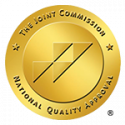Embarking on a sobriety journey can be one of your life’s most challenging yet transformative experiences. Whether recovering from alcoholism, drug addiction, or any other substance dependence, maintaining sobriety requires dedication, resilience, and a holistic approach to healing. One invaluable tool in this journey is mindfulness and meditation. This blog will explore the profound benefits of incorporating these practices into your sobriety journey.
1. Stress Reduction
Recovery often involves facing deep-seated emotions, addressing past traumas, and dealing with cravings and triggers. Mindfulness and meditation provide powerful tools to manage this stress. Practicing mindfulness teaches you to stay present and observe your thoughts and feelings without judgment. This allows you to navigate challenging situations with a greater sense of calm and control, reducing the likelihood of relapse.
2. Emotional Regulation
Substance dependence often masks underlying emotional pain or distress. Mindfulness and meditation help you healthily connect with your emotions. They teach you to accept your feelings and process them without the need for numbing substances. Over time, this emotional awareness and regulation can significantly contribute to your sobriety by addressing the root causes of addiction.
3. Increased Self-Awareness
Self-awareness is a crucial component of any successful sobriety journey. Mindfulness and meditation foster a deeper understanding of yourself, your triggers, and your vulnerabilities. By regularly practicing self-reflection, you can identify and address the patterns and behaviors that may lead to relapse. This increased self-awareness allows for more informed and adequate decision-making in your recovery.
4. Improved Focus and Concentration
Addiction can disrupt your ability to concentrate and stay focused on tasks. Mindfulness and meditation are concentration exercises, training your mind to stay present and resist distractions. As you build these mental muscles, you’ll find it easier to stay committed to your recovery goals and engage in productive activities that support your sobriety.
5. Reduced Cravings
Mindfulness techniques, such as urge surfing, teach you to ride out cravings without acting on them. By observing the physical sensations and thoughts associated with cravings, you can detach from them and let them pass. This can be a game-changer in preventing relapse.
6. Enhanced Coping Skills
Learning practical coping skills is essential for maintaining sobriety. Mindfulness and meditation equip you with tools to manage stress, anxiety, and other challenging emotions without turning to substances. You’ll develop healthier coping mechanisms that support your recovery journey.
Examples of Mindfulness Practices
Mindfulness techniques are powerful tools to cultivate self-awareness, emotional resilience, and inner peace, which are essential in maintaining a sober lifestyle. Here are five examples of meditation and mindfulness practices that can significantly benefit your sobriety journey:
- Mindful Breathing: Start by focusing on your breath and observing its natural rhythm. This practice helps anchor you to the present moment, reducing cravings and impulsive behaviors.
- Body Scan Meditation: Take time to scan your body from head to toe, paying close attention to any areas of tension or discomfort. This practice promotes relaxation and can help you identify physical signs of stress or triggers for substance use.
- Mindful Eating: By savoring each bite, you can cultivate a heightened sense of taste and texture, encouraging more mindful consumption and reducing emotional eating as a coping mechanism.
- Mindful Walking: Engage in a leisurely walk while paying attention to each step, the sensation of your feet touching the ground, and the surrounding environment. Walking mindfully can be a grounding exercise that helps you stay in the moment.
- Guided Meditation: Listening to guided meditation sessions tailored to addiction recovery can offer valuable guidance and support. These sessions often target self-compassion, acceptance, and building a positive mindset.
Mindfulness in Relationships
Mindfulness and meditation are powerful tools for personal healing and fostering better relationships, a crucial aspect of one’s sobriety journey. When individuals embark on the path to recovery, they often carry the weight of damaged relationships, strained connections with loved ones, and a history of hurtful behaviors.
Mindfulness can help individuals in recovery rebuild trust, bridge communication gaps, and develop healthier connections with family, friends, and support networks. Moreover, as mindfulness helps individuals better understand their own emotions and triggers, they become more equipped to communicate their needs effectively, helping them maintain long-term sobriety.
Incorporating mindfulness and meditation into your sobriety journey can be a transformative and empowering experience. These practices offer many benefits, from stress reduction and emotional regulation to improved self-awareness and coping skills. You can increase your chances of achieving and maintaining lasting sobriety by consistently engaging in mindfulness and meditation. Remember that your journey is unique, and finding the right approach to mindfulness and meditation that works for you is an essential step toward recovery.
Are you or a loved one ready to make a change? Reach out now at (833) 880-4357 to learn more about our programs. Our experts will be waiting for your call.









